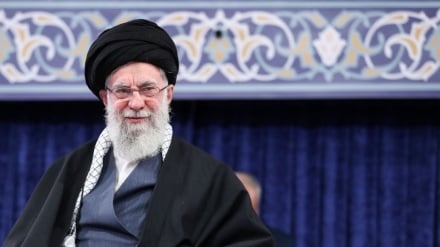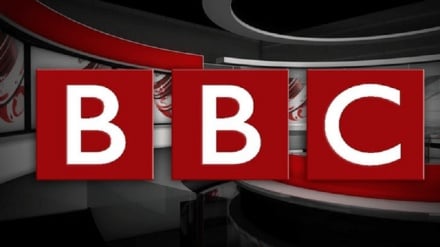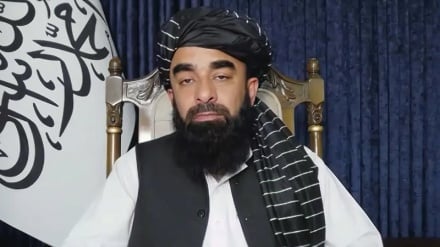Elections: Political Participation in Sacred Islamic System
Countdown has begun in the run-up to upcoming highly dynamic elections. The 12th presidential elections will be held concurrent with Islamic city and village councils vote, and parliamentary by-elections, on May 19.
A number of different political groups and currents take part in these elections. There are two important principles when it comes to elections. The first principle is participation of people in elections, which legitimizes elections and turns them into an influential current in the country’s political fate.
Meanwhile, the second principle of elections is participation of candidates who have announced their preparedness for acceptance of a responsibility.
In fact, establishment of a bond between these two currents of participation shapes the foundation and cornerstone of democratic elections.
The 38-year experience of the sacred Islamic system and participation of people in elections shows that the higher the turnout in elections, the stronger will be the influence of elections on the strength of the sacred Islamic establishment and credibility of the Iranian nation.
The Leader of Islamic Revolution has pointed out: “The higher the turnout of people in elections, the higher will be the credibility of the sacred Islamic system and Islamic Iran. This is because the sacred Islamic system is a popular ruling system, which relies on people’s sentiments toward elections.”
In democratic systems, elections generally rely on the principle of participation. However, the extent of participation is not the same in different ruling systems, and is materialized via a number of different approaches. In the sacred Islamic system, participation maintains a political development aspect, in addition to social aspects, and is a symbol of religious solidarity and sympathy, which in turn leaves a huge impact on dynamism of religious democracy; and further empowers the sacred Islamic establishment.
In fact, participation is an important principle in holding healthy and influential elections; and in the absence of participation; one cannot expect an election outcome in accordance with democratic principles. Whenever there is a low turnout in elections, the result of elections would also not reflect the requests and demands of the community.
Political analyst, Dr. Matin Anjam Rouz, notes: “Political participation is one of the benchmarks of democracy. Democracy maintains several features, such as separation of branches of government; participation; competition; freedom of speech; and participation in elections. Meanwhile, if we would want to summarize the most important benchmarks of democracy; participation and competition should be pointed out. Participation plays a decisive role in political processes. If we would want to define participation, it is comprised of quantitative and qualitative aspects. Meanwhile, the type of qualitative and quantitative aspects of participation varies based on the differences of political structures, and communities.”
History of elections in Iran dates back to 110 years ago. According to history, the first Iranian parliament was established in August 1906. However, a glance at the past shows that elections and participation did not maintain an actual meaning. When for the first time after the Constitutional Movement, parliamentary elections were held in Iran; only particular strata of the community maintained the right to have representatives in the parliament. The then political conditions in Iran were not suitable for interpretation of elections as one of people’s civil rights.
Based on the rules and regulations which were set by the Qajarid King, Mozafar Ed-Din Shah, women did not have the right to vote. The voters should have maintained a number of conditions. For instance; courtiers, aristocrats, traders, and landowners were the groups which upon the king’s order could elect their representatives. Among the ordinary people; those, who had valuable lands, maintained the right to vote, while the low-income strata were not allowed to cast their ballots.
However, reference to people’s votes after the victory of Iran’s Islamic Revolution, unfolded a different experience for people. Upon the victory of Islamic Revolution, the first reference to Iranian people’s votes took place for foundation of the sacred Islamic system.
After this referendum, Iranian people considered turnout in elections as a legal and legitimate responsibility for determination of the political fate of the society; so that the outcome of elections is the symbol of people’s resolve in administration of affairs.
There are two important currents in the process of participation. The first current is maintenance of healthy elections by the executive officials; and supervision over healthy and transparent elections. The second current is the role people play in determination of their fate within the framework of the Constitution; which in turn reinforces the country’s political and executive system, while people manifest their large-scale trust in their elected ruling system and officials via a high turnout in elections.
In accordance with civil rights, participation in elections is tantamount to participation in administration of the ruling system’s affairs, based on a democratic approach; within which all or part of the members of community elect an individual or individuals for a post. Meanwhile, vigilant and enthusiastic participation of people in elections, coupled with maintenance of values of Islamic ethics, leave huge social impacts, and promote political ethics in the community, resulting in the might of sacred Islamic establishment.
Participation of people in elections shows that people believe in the influence of elections on the management of country’s affairs, and therefore the outcome of elections is supported by people. Thus, those, who participate in elections, fulfill their important social, political, and religious duties.
According to the Leader of Islamic Revolution; Islamic Republic of Iran, via reliance on divine power, and belief in the strength of people’s presence in the scene, is not afraid of any global power.
MR/SS


